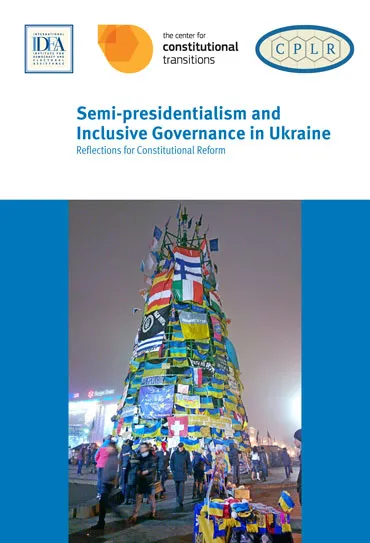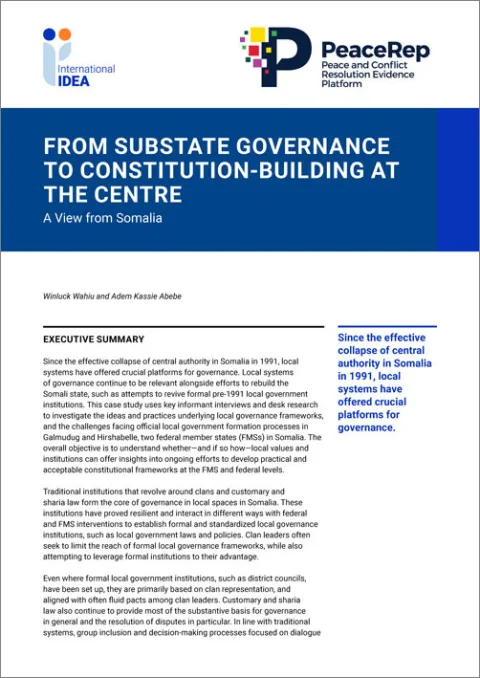Semi-presidentialism and Inclusive Governance in Ukraine
This report assesses the ways in which the semi-presidential form of government can be best structured to promote stable, democratic and inclusive governance in Ukraine.
Constitutional stability in Ukraine has faced four main challenges: (a) recurring institutional conflict among the president, legislature and government; (b) a presidency that has fallen prey to autocratic tendencies; (c) a fragmented and weak party system that has undermined the capacity of the legislature to act coherently; and (d) a weak constitutional culture and a weak Constitutional Court.
The report presents comparative knowledge from other semi-presidential systems, and reflections on the Ukrainian context, which could benefit a wide range of stakeholders, such as legislators, policy advisors, think tanks and civil society. It is based on an earlier report, Semi-Presidentialism as Power Sharing: Constitutional Reform after the Arab Spring, co-published by International IDEA and the Center for Constitutional Transitions in 2014.
Details
Contents
About this report
Acknowledgements
1. Introduction
2. Constitutional history and challenges in Ukraine
3. Principles for constitutional governance
4. The constitutional design of semi-presidential government
5. Additional constitutional design considerations of specific relevance to Ukraine
References
Abut the authors
About the organizations
Give us feedback
Do you have a question or feedback about this publication? Leave us your feedback, and we’ll get back to you
Send feedbackSemi-presidentialism and Inclusive Governance in Ukraine

| Total views | 13012 |
|---|---|
| Downloads | 85 |
| Rating |
Give us feedback
Do you have a question or feedback about this publication? Leave us your feedback, and we’ll get back to you
Send feedback











